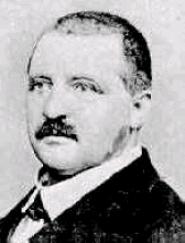String Quartet (Bruckner)
| String Quartet | |
|---|---|
| by Anton Bruckner | |

The composer, c. 1860
|
|
| Catalogue | WAB 111 |
| Composed | 28 July 1862: Linz |
| Performed | 15 February 1951: Berlin |
| Published | 1955 |
| Recorded | 1962 |
| Movements | 4 |
The String Quartet in C minor WAB 111, was composed by Anton Bruckner's in 1862 during his tuition by Otto Kitzler.
Bruckner composed the String Quartet in C minor between 28 July and 7 August 1862 during his tuition by Otto Kitzler, as a preliminary to exercises in orchestration. The manuscript of the Quartet was found on pp. 165–196 of the Kitzler-Studienbuch.
A week after completing the composition (15 August 1862), Kitzler tasked Bruckner with writing a Rondo in größerer Form. The 40-bars longer piece, which has the same key, metre and formal structure as the first Rondo, can, therefore, be regarded as an alternative to the first Rondo.
The Quartet was not issued during Bruckner's life, since it concerned a sample of capability during his study period at Kitzler. Bruckner did not bequeath a score of it as he did for the later Four Orchestral Pieces. The Kitzler-Studienbuch was wound up in the legacy of Bruckner's friend Josef Schalk in Munich, in which the Quartet was discovered in 1950 by the Koeckert Quartet. The Koeckert Quartet premiered the Quartet on 15 February 1951 in a Rundfunk im amerikanischen Sektor broadcast, and performed it on 8 March 1951 in a concert in Hamburg.
The String Quartet was edited by Nowak in Band XIII/1 of the Gesamtausgabe in 1955.
The piece is a conventional string quartet in the usual four movements:
Duration: 19 to 24 minutes.
Unlike his later works, Bruckner gave few indications as to phrasing, while dynamics appear only at a few key points. Rudolf Koeckert allowed Leopold Nowak to put his group's phrasing and dynamics into the Gesamtausgabe parts. However, the Gesamtausgabe score contains only those markings in Bruckner's hand. The String Quartet is a settlement with classical and early romantic examples. The from the beginning polyphonic imprint refers back to Bruckner's earlier exercises.
...
Wikipedia
